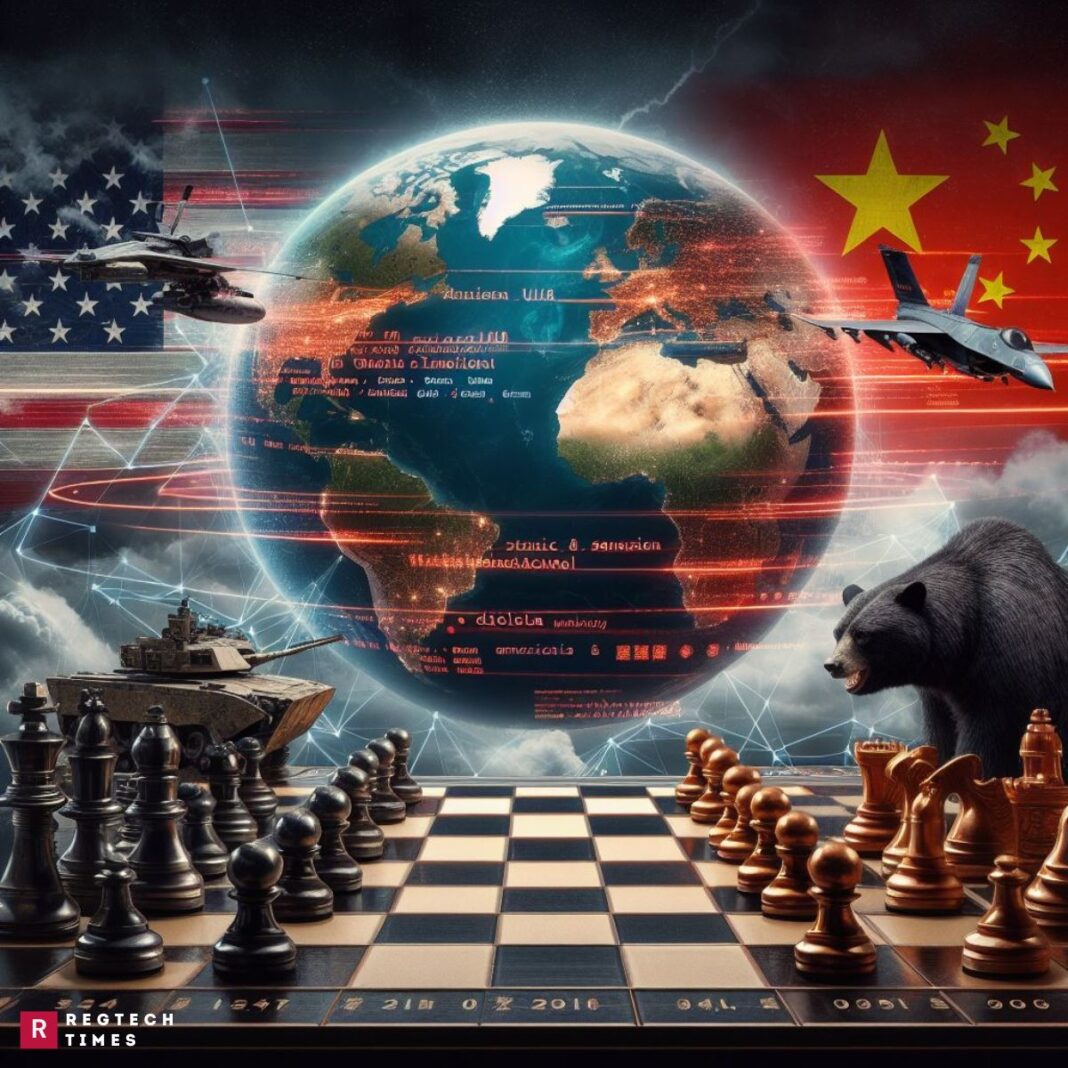Beijing has slapped sanctions against two well-known US defence businesses, General Atomics Aeronautical Systems and General Dynamics Land Systems, in a move that highlights the growing tensions between the two countries. The firms’ suspected participation in weaponry shipments to Taiwan, an island democracy that China claims as its own territory, is the reason behind the penalties, which were announced on Thursday. This bold move by China reveals the delicate dance of power, diplomacy, and national security interests that characterizes modern international relations and represents a turning point in the complicated tripartite ties between China, Taiwan, and the United States.
The Essence of Sanctions
China’s strategic goal of reiterating its claims to Taiwan’s sovereignty and discouraging foreign participation in the island’s defence capabilities is at the core of these restrictions. As part of the penalties, General Atomics Aeronautical Systems and General Dynamics Land Systems’ assets are frozen in China, and its executives are not allowed to enter the nation. This is not just a symbolic step; it has a big impact on how these defence industry heavyweights operate in one of the biggest marketplaces in the world.
Key participants in the global military sector include General Dynamics, which is essential to the production of the Abrams tank, and General Atomics, which is well-known for its cutting-edge remotely piloted aircraft, such as the Predator and Reaper drones. Their engagement in providing Taiwan with military equipment underlines Taiwan’s strategic significance in the US-China geopolitical competition and directly challenges China’s territorial claims.
Implications for the Defense Industry
The targeted firms’ ability to conduct business in China may be hampered by the penalties. General Dynamics may experience difficulties with its aircraft technology and services activities in the nation, and General Atomics may encounter difficulties with its partnerships or assets in the Chinese market. Since both businesses are essential to the defence capabilities of the US and its allies, it is unclear how these sanctions would affect the global defence sector more broadly.
The Broader Geopolitical Context
This development takes place against the backdrop of increased US-China tensions over Taiwan and US sanctions on Chinese companies for allegedly supporting Russia in the crisis in Ukraine. Taiwan’s security and autonomy are at the centre of this geopolitical tug-of-war, which is testing the complex web of economic and security interests that binds these countries together.
Taiwan’s desire to protect its sovereignty is demonstrated by its attempts to strengthen its defence capabilities through the purchase of cutting-edge military hardware from the US. China’s penalties, however, send a strong message that it would not tolerate any behaviour that may be seen as endorsing Taiwan’s de facto independence.
Looking Forward
China’s penalties against US defence companies are an uncommon but noteworthy step that emphasizes the continuous fight for power in the Asia-Pacific area. Given China’s reliance on foreign technology, it is unclear how these penalties would influence its own aerospace and defence objectives, but there is no denying that the action adds another level of complication to Sino-US relations.
The future of Taiwan, the stability of US-China ties, and the dynamics of the global military sector are all in jeopardy as the whole community closely monitors the situation. China’s sanctions are the result of strategic considerations that show not just its short-term worries about Taiwan’s defence purchases but also its longer-term goals of changing the regional order to its advantage.
A sophisticated grasp of the interactions between foreign diplomacy, economic interests, and national security is necessary in light of the current circumstances. The choices made by the US, China, and Taiwan as they negotiate these choppy seas will have a significant impact on the peace and stability of the Asia-Pacific area as well as beyond.



